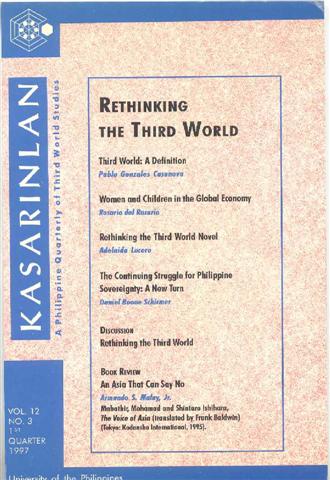Women and Children in the Global Economy
Abstract
Third World economies have been reshaped, and their roles in the new world economic order redefined, by globalization. Nowadays, the global economic system is highly dependent on cheap labor supplied by developing countries. Despite their invisibility, women are actually key players in the global workforce, spending fewer years bearing and rearing children while devoting more time in the labor market. Privatization and other structural adjustments in the public sector, which usually provides stable jobs for them, result in mass layoff and less social services. In ecozones, women work long hours and suffer from health and psychological disorders, low wages, and do not enjoy their basic rights and full benefits. The lack of employment and livelihood opportunities in the rural areas forces the women to migrate net only to cites but also to foreign countries, exposing them to various work-related and cultural oppression. Women are likewise active in the informal sector whose precarious state deprives them of ample protection. Of the world's poor, women constitute 70 percent. With families to take care of, they cannot but pass on their poverty to their children, especially their daughters, who have to work to augment their meager income. Hence, women and children are the most adversely affected by globalization.
Published
2007-10-09
How to Cite
DEL ROSARIO, Rosario.
Women and Children in the Global Economy.
Kasarinlan: Philippine Journal of Third World Studies, [S.l.], v. 12, n. 3, p. 11-24, oct. 2007.
ISSN 2012-080X.
Available at: <https://journals.upd.edu.ph/index.php/kasarinlan/article/view/314>. Date accessed: 24 sep. 2025.
Section
Features
By submitting a manuscript, the authors agree that the exclusive rights to reproduce and distribute the article have been given to the Third World Studies Center.



